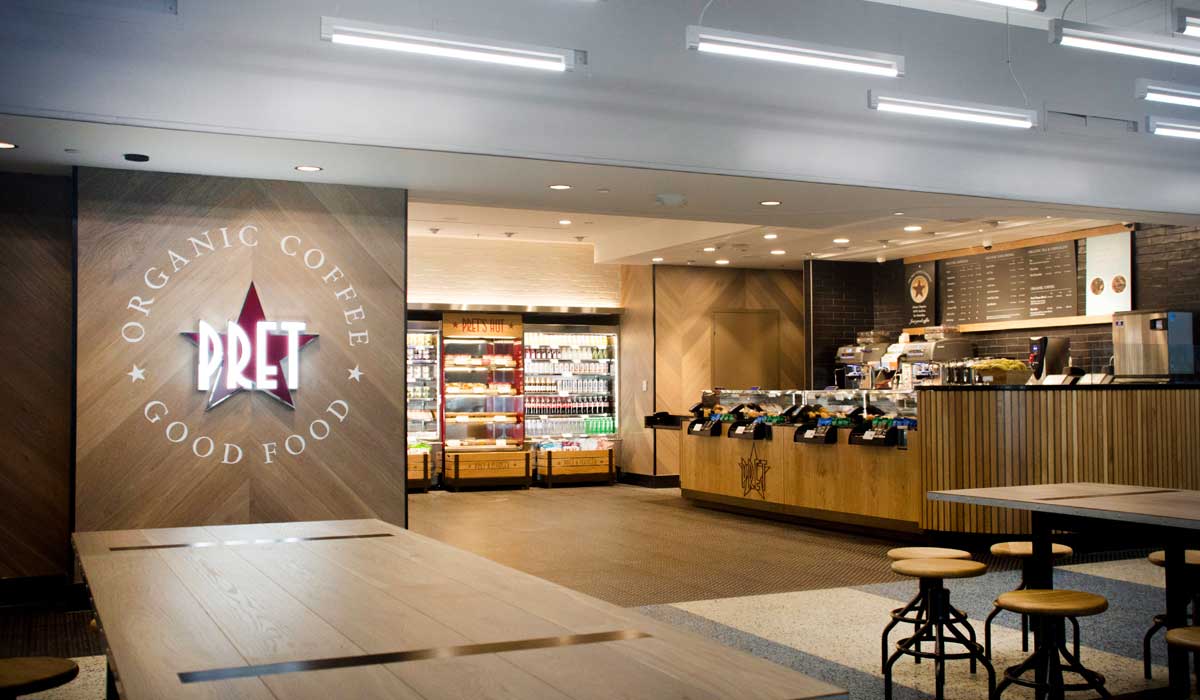London-based Pret A Manger, which sold a majority stake to JAB Holding Co. in 2018, announced the closure of 17 locations in Boston and Chicago. Outside of a University of Chicago site, the café chain exited both markets.
Six of the units were in Boston and 11 in Chicago. The company also elected to shutter 30 U.K. restaurants.
Pret A Manger has reopened 51 stores across New York, Washington, D.C., and Philadelphia in recent weeks. In a release, the company said its working on a fresh business model, and expanded delivery options with Grubhub and Seamless.
“It’s a sad day for the whole Pret family, and I’m devastated that we will be losing team members,” Pano Christou, CEO of Pret A Manger, said in a statement to Boston.com. “But we must make these changes to adapt to the new retail environment. Our goal now is to bring Pret to more people, through different channels and in new ways, enabling us to grow once more in the medium term.”
He added: “We cannot defy gravity and continue with the business model we had before the pandemic. That is why we have adapted our business and found new ways to reach our customers. While Pret may look and feel different in the short term, one thing I know is that we will come through this crisis and have a bright future if we take the right steps today.”
Per the Boston Herald, sales across Pret A Manger’s U.S. locations have fallen 87 percent, year-over-year, during the pandemic. It also noted its U.K. recovery was progressing “much slower.”
Pret A Manger’s COVID-19 response to date included allowing a maximum of six customers in stores at time, masks required. Floor markers for social distancing and protective barriers at the front counters were installed as well.
The company said employees wash their hands every 20 minutes and Pret A Manger increased the frequency of sanitizing all high contact surfaces in shops to a minimum of once every 20 minutes.
According to FoodserviceResults, Pret A Manger had systemwide sales of $220 million in 2019, up 2.3 percent, year-over-year. It finished the year with 95 domestic stores and average-unit volumes of $2.35 million.

